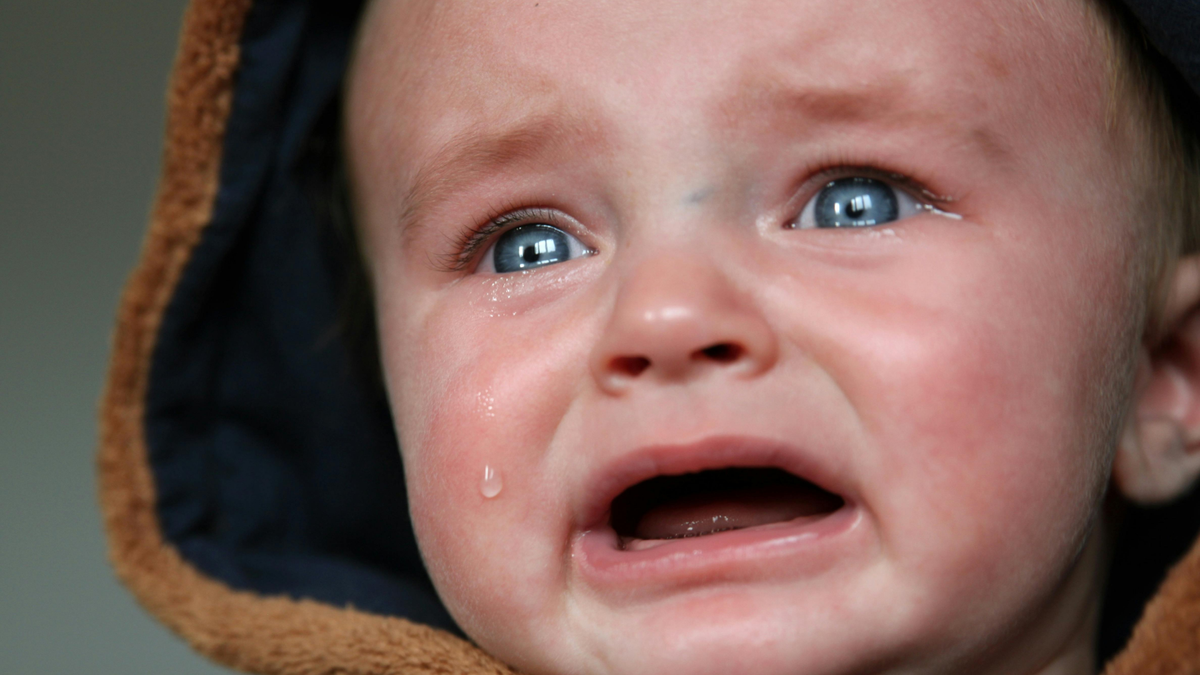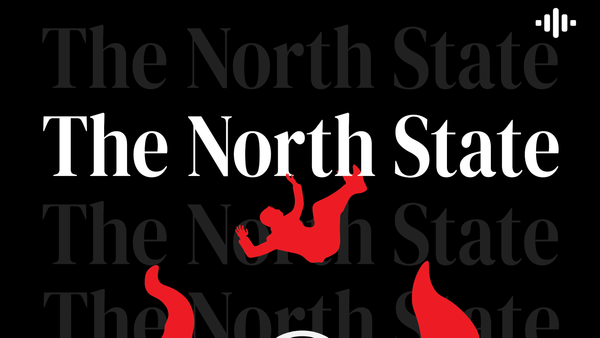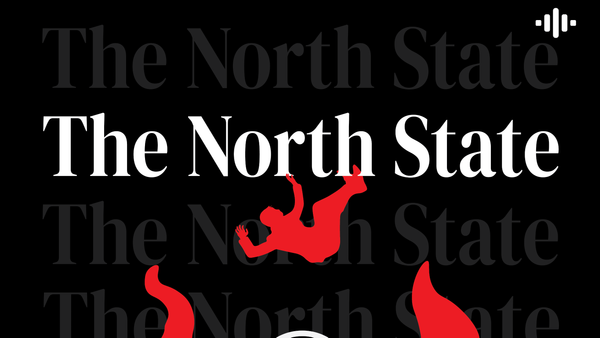News Media Prioritizes Property Owner Victim Complex
Diapers have been filled over $370 more a year while renters struggle to keep their housing

The world may as well have ended on on Jan. 10, 2024 for landlords and property owners in Toronto. That was the day that Mayor Olivia Chow announced a 10.5 per cent property tax increase in the proposed budget. This combines a nine per cent property tax increase with a 1.5 per cent increase to the city building fund.
Budget Chief Shelley Carroll said this will mean an average increase of $360 per year for the average Toronto household. In essence, that means less than a dollar a day more in taxes for homeowners in Toronto, Canada's most expensive city. The increase will affect those with multiple properties more. Indeed, properties with multiple units, owned by larger landlords and rental companies, actually get more leeway. The proposed property tax increase is 4.5 per cent for multi-residential properties (p. 23).
News media reported the adjustment for residential properties breathlessly, CTV News, Global News and the Globe and Mail all reported the SHOCKING (slight) increase taxes on property owners. News that property owners in Toronto can "have their say" about the increase appeared in CBC News and CityNews. But once it was further reported that an additional six per cent increase would be levied if the federal government doesn't provide $250 million in funding for refugees, all hell broke loose.
The Meltdown
Liberal MP for Etobicoke Centre threw a massive hissyfit, calling the conditional six per cent a "shakedown." To its credit, the CP24 piece does have this excellent juxtaposition.
Baker accused Chow of “pointing fingers at other levels of government who have come through for her” and said that the city should have looked for savings before proposing a property tax increase.
According to the proposed city budget, staff identified over $600 million in savings before the latest tax increase was proposed.
The right-wing media collectively shit their pants, of course. In a segment with Brian Lilley and Warren Kinsella wherein they were interviewed by the Toronto Sun's Editor-in-Chief Adrienne Batra and her terrible mic quality, Lilley laid down his deft knowledge of complex math. "Take away that six per cent? People still need to be angry at Olivia Chow because you take away that six per cent, it's still a ten-and-a-half per cent property tax increase."
Lilley forgot to mention, of course, that the 10.5 per cent increase averages out to less than a dollar a day for the year. Lilley often forgets to mention things. Kinsella then called the condition a "suicide note" in the same segment, and they all complained about a modest increase in taxes. The City of Toronto will presumably perform seppuku any day now.
"This is not the time for Olivia Chow and her crew down at City Hall to be hammering us with such a significant tax increase. They should be looking in their own backyard to shave off some of those dollars that they're spending," Batra says.
"They should be looking for savings before they go asking for more money and that would have put them in a better standing," Lilley agrees. "They didn't do that."
But as CP24 reported. Yes, they did. See for yourself on page 15.
Lilley's tantrum wouldn't be confined to this poorly produced web segment, of course, and he wrote an opinion column to further solidify his incessant whining. But the less said about anyone from the Toronto Sun, the better.
It's important to note that, if the raise does reach the dreaded 16.5 increase, that would be an average of $374 a year. That's right, that's paying an additional amount of $1.02 a day, on average.
Somebody stop the massacre, please.
The rest of PostMedia's team took the opportunity to sink their decrepid talons into this proposed increase of less than a dollar a day, (or gasp, maybe just over if it becomes 16.5 per cent!). Anthony Furey, in a "special" to the National Post, opens his columns with the same lie that they didn't find savings in the budget. "It's a heartless thing to do given the state of the economy," he crows. Much unlike the compassionate views the National Post is famous for.
The Financial Post published a piece saying that the increase would be unnecessary... if the city instead chose to pursue union-busting measures in construction projects. The article bemoans the tactic of choosing particular unions for construction projects, instead of other entities. While it notes that other unions could be part of this change, the true intentions are soon revealed.
"As a result, the city fails to treat all workers equally and violates their constitutionally-protected freedom of association," author Renze Nauta writes. "Which involves the freedom not to associate in a union, if that’s what workers prefer."
The Canadian Taxpayers Federation also did what we all expected. "The average home price in Toronto was $1,084,692 in 2023," the piece reads. "A family that owns that home would see property taxes rise by $758 under Chow’s plan."
This equals two dollars and seven cents a day.
The article then compares this to the average family's grocery bill increasing astronomically in the coming year. Taxing grocery companies to offset these predatory prices, however, is something the Taxpayers Federation vehemently opposes as well.
At this point, I will remind you that the tax increase for multi-residential properties is half it is for residential properties. I have an easy solution, swap the rates. Note how that isn't suggested. Judging by the claims that the city didn't look for savings before proposing this, I doubt these voices even read the budget.
It's truly disgusting how these right-wing hawks use the affordability crisis to frame a reasonable increase, meant to help tackle Toronto's massive budget shortfall, as a way to keep working-class people from achieving any benefits at all. This increase will not solve the crisis, but it's meant to shift some of the burden onto property owners. Nobody likes paying more. Yet even a proposed tax hike equalling an average of a dollar a day is completely inconceivable to these parasites.
Renters Left In the Cold
CityNews reported on how this increase will affect renters in the city, and it's simply taken as an incontrovertible path of nature that landlords will increase rent to suck the life from their tenants.
That's odd, because in February of last year, a report from Rentals.ca and Urbanation found that, between Jan. 2022 and Jan. 2023, average rents in Canada jumped 10.7 per cent. This included a 20.8 per cent increase for Toronto condo and apartment rentals.
In fact, average rent prices in Toronto from 2021-2023 skyrocketed 40 per cent.
The earlier mentioned omission of landlords with multiple properties, and companies that own rental properties, is glaring in the coverage so far. It becomes even more glaring when compared to a new article by CBC News about the woes of being a landlord in 2024.
The article is about a site that allows landlords to log "delinquent Ontario tenants" and its founder's struggles with tenants.
It began because Weiting Bollu had a tenant that stopped paying rent, and she wanted him out of a house she owned in Vaughan. Now anyone can log any tenant's misdeeds on the site, supported with court documents. The database contains over 10,000 documents of tenants that anyone can access. Anyone can submit court documents that support their claims. This essentially prevents some people from ever having a roof over their head.
But for Bollu?
"You'll hear from landlords that it's mental distress, emotional, financial, legally, physical distress that they're under," she said.
"This pain? It's real. And I felt it and that's why I'm so passionate about making a change."
The pain for someone being homeless, however, is presumably less worthy.
After multiple paragraphs of quoting landlords who's sole issue is that their investment property hasn't returned gains, the article finally speaks with Geordie Dent, from the Federation of Metro Tenants Associations. His quote dismantles the entire purpose of the article.
"You're creating a system where people are blacklisted for reasons that might be frivolous," he said. "You're basically creating a homeless person."
That was the second last paragraph, by the way. The article then ends with "similar" databases, like Rate The Landlord and Toronto's RentSafeTO.
The difference between these databases? One has the power to render someone homeless. The disproportionate power that landlords have over tenant's isn't discussed.
Bollu assures that she checks the accuracy of the submission can be trusted. The database contains more than 10,000 documents, and accidents happen, so take that for what it's worth. But even charitably assuming the accuracy of the documents on the website, how many landlords using the database will be as thorough? When homelessness is on the line, this can't be left up to chance.
Coverage of the proposed property tax increase has been embarrassing to see in real time. It's baffling for the renters in this city to see such an indignant response to a relatively modest increase on taxes while they deal with year-over-year spikes in prices. Rent control was removed by Ford for any unit used for the purpose after November of 2018, and tenants have felt the vice grip tighten. Yet the news media apparatus doesn't crow for them.
It seems unlikely the conditions for renters will ever reach the panic level it does for property-owners. Our news media would rather prioritize the feelings of the people who exploit renters. At the very least, this dynamic is instructive to how the worsening housing crisis will be framed in the future.
That doesn't keep people housed, though.





